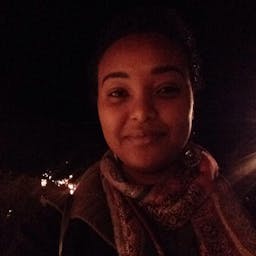Magnifying the sound of survivors of sexualized violence in Sudan
Jan 21, 2015
Story
My journey began when I was old enough to realize that there was something terribly wrong with how restricting gender norms and expectations are. I was born in Saudi Arabia, a country where women are degraded and dehumanized by strict laws and customs. I was also raised in Sudan, where -even though women enjoyed more freedoms such as the ability to work and drive automobiles- cultural norms and patriarchy still lurked within the society. I started to ask myself and wonder why women were treated differently than men, and why they were was much hush-hush when women’s issues were discussed. This made me restless, and my passion for resolving this dilemma began to grow and expand to the point where I wished there was something I can do. For a long time, I kept on harboring feelings and thoughts, until I decided that the best outlet for them was through citizen journalism, through which I will be able to empower women through exposing deep underlying issues.
One of the most important issues that I seek to address, and solve is the use of sexualized violence against female activists in Khartoum, and in conflict zones such as Darfur, where rape is still continued to be used as a weapon of war. The issue of sexualized violence is one that is swept under the carpet, and not enough attention is being given to it, nor has it made its way to be regarded as an issue that affects women’s health. The reason for this is that Sudanese culture is one that treats rape as a taboo subject due to its sensitive nature, and one that rushes to blame the victim, thereby giving way for the perpetrators to enjoy unlimited impunity. About two years ago, I was shaken to the core, when Safia Ishaq, an activist with Girifna spoke about her ordeal of being gang raped by the NISS in Khartoum. I was outraged, but inspired to help women and girls who have gone through this trauma.
Safia’s case was unique because she transcended cultural conceptions and taboos. It is not customary for women who have been raped to speak out, or they would face society’s merciless victim-blaming. Her courage continues to inspire me as I speak, and that is why I have taken a positive step to gain experience in helping rape survivors. Right now in Sudan, there are no centers or facilities that specifically offer support to the survivors of rape because of the taboo nature of the issue, as well as the disintegrating infrastructure. I am currently a certified sexual assault advocate serving on the crisis hotline to lend my mind and heart to survivors of this most traumatic of experiences. My vision to tackle this problem is to introduce the concept of confidential crisis hotlines and/or counseling centers throughout Sudan to support rape survivors. I hope to be able to channel my passion for helping survivors, and continue my journey of empowerment.




